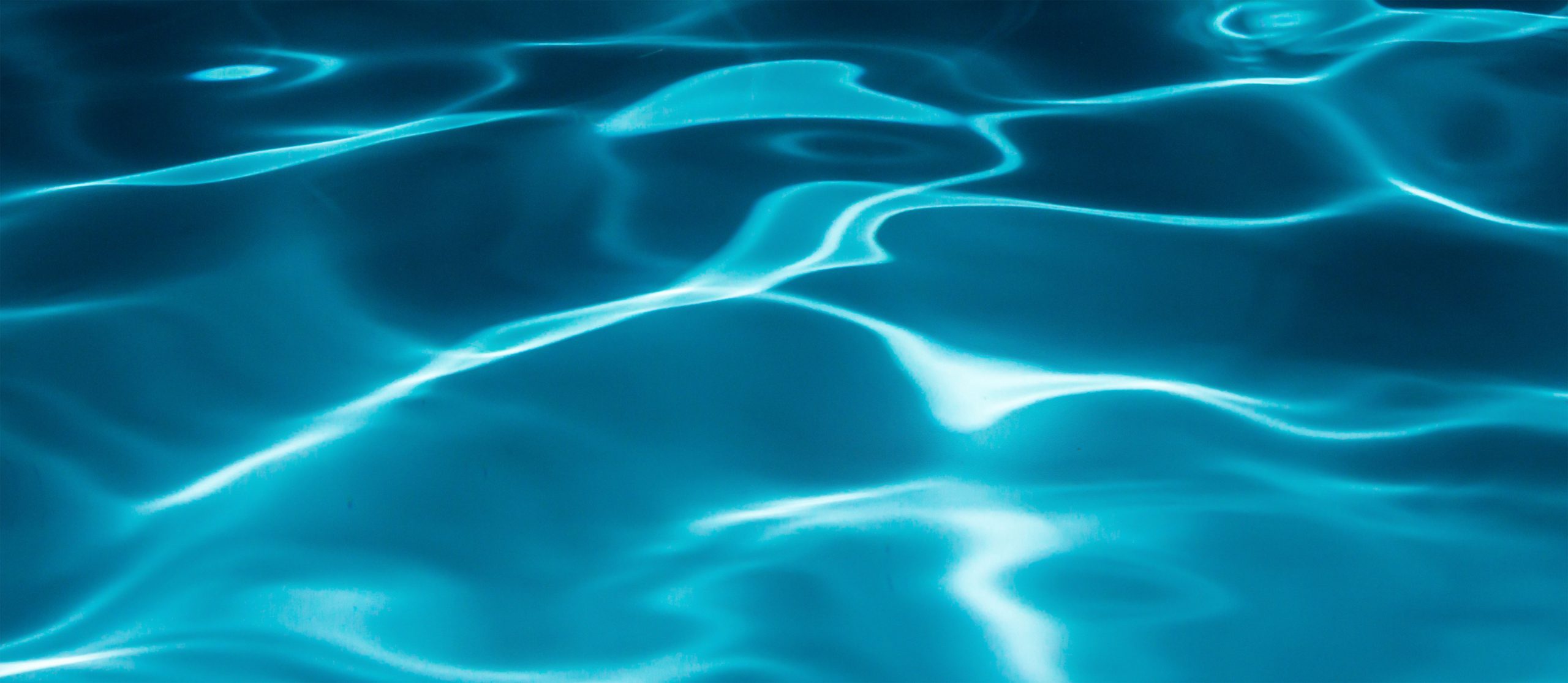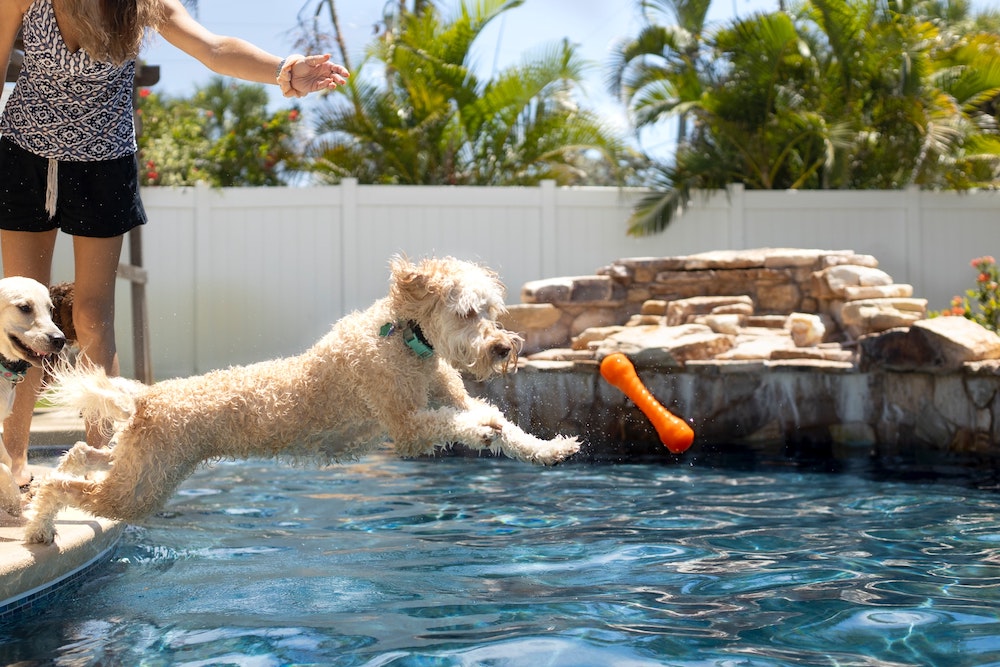The Pool Heater Buying Guide for 2023
- January 10, 2023
- Blog, Pool Heater,
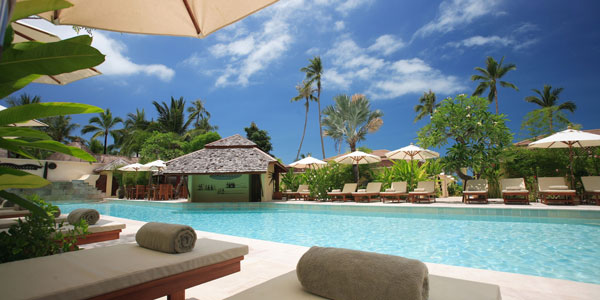
Cooler weather doesn’t stop us Floridians from enjoying a swim. But it doesn’t mean we love taking a polar plunge, either! It’s great to live in a place where you can swim outdoors year-round, but that can’t happen without a pool heater to warm up cold water in cooler weather.
If you’re looking to take your pool to four-season functionality, a good pool heater will do the trick. But which one should you choose? We’ve got you covered with our handy guide to this year’s pool heater market.
You can find these pool heaters (and more!) in our Miami showroom. We’ll install it, too!
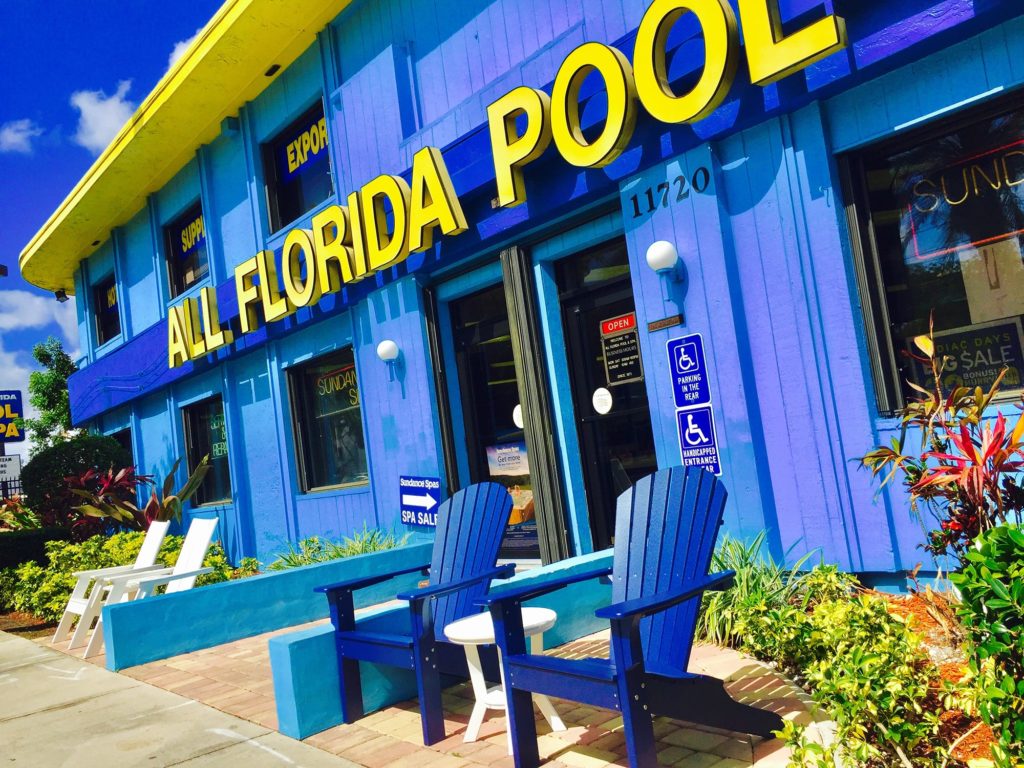
What to Know Before Buying a Pool Heater
How much space does a pool heater need?
Before you start, you should know whether you have enough room for new pool gear. A pool heater is most often installed after your filtration system. That means there needs to be at least 3–4 feet of room for the heater to fit into your rig. Otherwise you may need to invest in some rearrangement renovations.
What type of pool heater should I get?
There are other types of heaters we’re not going to cover here — such as solar and electrical resistance heaters — because heat pumps and gas are really your best bets.
Heat pumps are the most common and efficient type of swimming pool heaters to use in Florida. A heat pump takes the heat from the outdoor air, then transfers it to the pool water via a compressor and a heat exchanger.
Heat pumps are generally more expensive than gas heaters, but use much less energy and last longer. However, heat pumps start to lose efficiency when it’s below 50 degrees outside, and they’re practically useless in freezing temperatures. Luckily for Floridians, this isn’t too much of a concern.
Gas heaters can heat a pool very quickly, but do so at the expense of either natural gas or propane. They’re not as efficient as heat pumps, but the startup cost is much less. Gas heaters are particularly great if:
- Your house already has a natural gas line
- Your pool is very small and quick to heat
- You don’t plan on keeping your pool heated constantly throughout the winter months
Heating? Cooling? Or Both
Some heat pump models don’t just heat water, but can also lower the water temperature in hot weather. So if your water is too cold in the winter and too hot in the summer, you might want to consider one of these options! Just look for a model notated as a “Heat and Cool” or “H&C” unit.
What size pool heater do I need?
Here’s a quick formula: For every 10,000 gallons of water, you need about 100,000 BTUs to heat your pool properly and in a reasonable amount of time.
But what about if your pool is somewhere close to the edge? When it comes to pool heaters, it’s always better to size up than down. Not only will this heat your pool faster, but it puts less strain on your new gadget.
Do you plan to keep the pool warm year-round, or just in the winter months? Are you using your pool every day in December, or just once in an ice-blue moon? Is the heater dedicated to a backyard pool, or is it also providing auxiliary heat to your hot tub?
These questions can determine the size and function of your pool heater. Be sure to bring these factors up with your pool professional when you’re thinking of purchasing the right heater.
How much does it cost to heat a pool?
Aside from the initial purchase and installation, you’re going to find most of your pool heating expenses wind up on your energy bill. The energy cost to heat your pool depends a lot on:
- The size of your pool
- The type of heater you use
- Your local climate
If you’re using a heat pump, you can expect to pay about $2,000 a year in Miami. Since gas heaters are usually less energy-efficient, it could cost nearly double if you were to heat your pool year-round.
How long does it take to heat a pool?
The time it takes to heat your pool also depends on its size, the weather, and how much heat you use.
On average, it takes about one hour per degree for a 100,000-BTU heater to heat a small backyard pool. In cooler months, expect this to take 12 to 24 hours to get to a comfortable temperature.
Our Top Pool Heater Picks for This Year
Best Overall Pool Heater
Gulfstream HE-2 Series
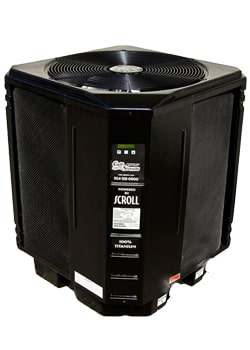
Pros:
- Great value
- Plastic cabinet withstands corrosion
- Energy efficient
- Ultra-resistant titanium heat exchanger
Pound for pound, dollar for dollar, we love Gulfstream’s quality and value. They’re heat pumps made by Floridians, for Floridians, designed specifically to withstand the Florida elements. The plastic cabinet holds up over time against the salty ocean air.
Speaking of corrosion, Gulfstream knows a thing or two about it. That’s why they use titanium heat exchangers to create a more durable, consistent heating experience. If you’re looking for a great heater at an even better cost, this is it.
Best for On-And-Off Usage
Raypak Gas Heaters
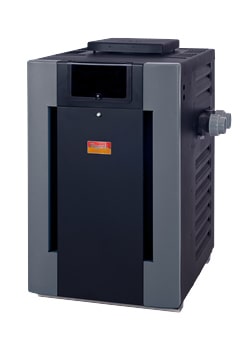
Pros:
- Affordable startup cost
- Heat when you want it
- Functional in frigid temperatures
Maybe you’re using your pool for a few quick swims after making a New Year’s resolution, or you’re entertaining a wild pack of bored children. Raypak is the standard in gas pool heating. It’s a fantastic draw for anyone who isn’t using their pool 365 days a year, or just wants to save some cash upfront. You also have the dual benefit of quickly heating your pool for a short period of time … perfect for, say, a weekend holiday pool party?
Most Durable
AquaCal HeatWave SuperQuiet Series
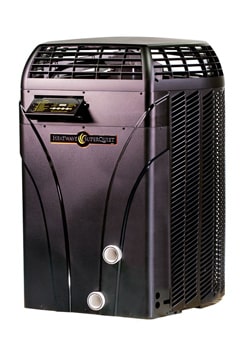
Pros:
- Durable, long-lasting
- Smartphone controls
- Seriously efficient
For those looking to go the extra mile and put in a serious investment, AquaCal has you covered for longer. Like Gulfstream, AquaCal heat pumps boast a super-durable titanium heat exchanger, but they don’t stop there. That’s because the SuperQuiet also delivers some of the best energy efficiency on the market, unit-to-unit. Also, it really is just that — super quiet, which is a nice feature if your equipment pad is situated outside a bedroom.

